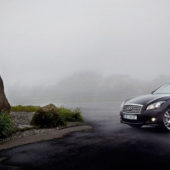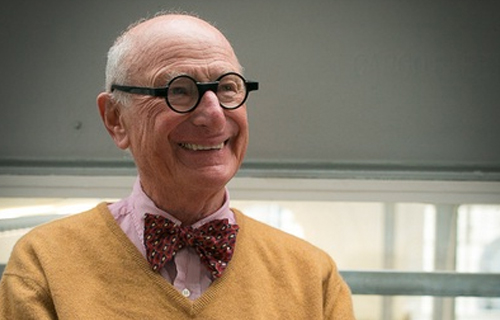A legacy article on Brand Jamaica taken from here:
A number of current issues seem to suggest that Jamaica needs a clear definition of what kind of country it is, what it stands for, and where it is going. But Jamaicans need to take the lead in defining themselves or else others will define us for their own purposes, out of their own stereotypes, and based on their own prejudices.
Lately, for instance, some organisations have described Jamaica as homophobic. Transparency International describes Jamaica as corrupt. International credit agencies ha ve at times said Jamaica is a bad place in which to invest. There is a general perception that Jamaica is a violent place. This struggle over definition is not just one between Jamaicans and foreigners, but between Jamaicans themselves, both at home and abroad.
THE BRAND STATE
Peter van Ham refers to a new phenomenon, a trend from nation-building to nation branding, and the rise of what he calls the ‘brand state’. The brand state refers to the outside world’s ideas about a particular coauntry. It demands that countries and cities, like corporations, market themselves through aggressive sales techniques. Having a bad reputation is not good for business and being unbranded makes it difficult to attract attention. The brand state uses its history, geography, and ethnic motifs to construct its own distinctive image.
He gives the example of Britain. New Labour was a re-branding of the British Labour Party and Cool Britannia was a pun on Rule Britannia. Tony Blair has attempted to creaate a new image for Britain, not as an island nation, traditional and conservative, but as a global hub for the media, music, design, film and fashion industries. He wanted to make Britain more fashionable. The country’s artistic elite advised him on how to make the country look enterprising, hip, and cool. Ham believes that the old world of politics in which influence was based on ideology and raw power is giving or must give way to a post-modern world in which influence is based on image, a form of identnity politics
He said, “Smart states are building their brands around reputations and attitudes in the same way that smart companies do.” Globalisation is putting pressure on states to develop, manage and leverage their image. Besides, as integration creates greater homogenisation, states need to craft distinct images to stand out in a competitive crowd.
Many countries are struggling to re-brand themselves. Those of the former Soviet bloc like Poland and Estonia want to shed the image asa backward, former Soviet-bloc countries and associate themselves with the EU and its image. The EU itself is trying to re-brand as a beacon of civilisation and prosperity in an otherwise disorderly world. India and China want to be seen as large, dynamic, growing markets, rather than as overpopulated, bureaucratic, poor countries. A country like Haiti needs re-branding badly. It needs to play on its proud history, the advantages of its geographical location, and its cultural talents in arts and entertainme nt.
RE-BRANDING JAMAICA
Jamaica too is engaged in this re-branding process. “Buy Jamaican, Eat Jamaican” aims at tapping into brand name loyalty, that is, patriotism towards Jamaica as a brand name. ‘Reggae Boyz’ has become an international brand name in soccer. Our ‘One Love’ tourism ads portray Jamaica as a successful multicultural society, living happily under the sun and using Bob Marley’s music, recognisable as a world anthem, to brand our tourism market.
One study (morethan 20 years ago) showed that there was a bias in Europe and North America against products from the developing countries because of the image that these countries had. Product brand and country brand go together to make ‘country of origin’ more than a label of trade law. Another study found that attitudes toward a specific product or brand could change substantially when the country of origin of the product is revealed to the consumer.
JAMAICA’S POINT OF VIEW
What this means is that Jhamaica’s development depends on how people see the country and its people. If some people are allowed to define Jamaican music and musicians as anti-gay, the world market for Jamaican music will suffer. If they are allowed to get away with imaging Jamaica as a country in which the state and police attack homosexuals and that this somehow causes an AIDS epidemic, our tourism industry will suffer. The issue is not just one of human rights. It is about branding Jamaica and building Jamaica. We must thereforebe careful about what we say about ourselves. The mass media and the opinions of national leaders shape the reputation that a country has. We must be careful about how we treat people. Personal experiences also shape our image.
A Letter to the Editor by Julia, Alicia and Robert Roskind (December, 2003) describes the kind of image that Jamaican music and our One Love anthem have among millions of people. They wrote, “This vibration of One Love emanating from Jamaica through its reggae music is hav ing a profound healing effect on people everywhere. Every day millions of people around the world listen to your reggae artistes, your messengers of ‘One Love’, not just for entertainment, but for guidance, healing and upliftment as well. It is a force that must be respected, honoured, and nurtured. To many it is clear that Jamaica is playing her part in advancing the welfare of the whole human race during these vulnerable times.”
The Roskinds have been involved in Healing of the Nation Concertsusing Jamaican music and artistes. We all know the dark side of Jamaican (and international) music but, as the Roskinds repeated in a more recent Letter to the Editor this November, we should not allow ourselves to be defined by that. We can, for instance, highlight the fact that Tony Rebel and a number of reggae artistes are promoting an Artistes Against AIDS movement (with UNICEF and the Ministry of Health) to sensitise the 15 to 24 age group that is mostly afflicted by AIDS/HIV.
SUBSTANCE OVER/ STYLE
The Jamaican government has said it wants to make Jamaica a first class country by 2017. A ‘first class country’ is the ultimate brand name to have. We must transform our educational system, family, community and workplace structures to produce first class people. HEART/NTA, for one, has committed itself to produce a first class work force.
The potential is there. If money talks foreign investors have an important say in how we are defined. The US Commercial Service says that thea number of US companies operating here has increased by nearly 200 per cent since 1988 because the country is politically stable, and because of its physical beauty, the warmth and friendliness of its people, its strategic geographical location, and its preferential trade agreements with the US. Canadian tour operators have spoken well of Jamaica saying the Jamaican people were ‘the country’s best assets’. The World Investment Report shows that Jamaica has moved dramatically into the top twenty of the worled’s investment destinations.
WORLD-CLASS CITY
We are defined by the standards we accept for ourselves. Happily, Mayor McKenzie has now come to his senses and we can begin to make Kingston into a world class city. Kingston is our front door to the world with great potential to become an international merchandise and cultural centre. A world class capital city is one way by which to redefine ourselves.
Jamaica is already a world known name brand. If we are not careful, others cran use our negatives against us. We must be clear about who we are as a nation and create the substance by which we can honestly and successfully brand ourselves as a progressive, dynamic and caring nation. We should not do this just to prove our critics wrong but to prove those who have had faith in us all along to be right.
– Article by Robert Buddan, lecturer in the Department of Government at the University if the West Indies, Mona.




